Supreme Court

Rather than a Third Great Awakening I believe we are standing in the threshold of a Great Grace Awakening. It’s a move of the Holy Spirit drawing people away from legalistic and fear-based beliefs to a place some of us would call grace.
On the surface, it may seem to fly in the face of some traditional Judeo-Christian ethics. But it is aligned with a broader, more universal ethic that seems to be developing around genuine Christian love and grace — the very essence of Jesus’ ministry and what makes it so revolutionary — as guiding principles.
Grace is the reason for the incarnation. God became human and walked in our sandals because God knows us and wants us to be known.
Grace says that there is nothing we could ever do that would make God love us less. And grace tells us that there’s nothing we could ever do that would make God love us more. You are loved simply because you are and for all of who you are. Full stop.
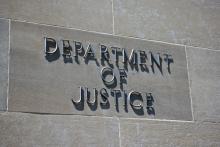
The Obama administration will attempt to circumvent the Supreme Court’s June ruling that struck down of a key part of the Voting Rights Act.
As part of an existing lawsuit that challenges the legality of a 2010 redistricting plan in the state of Texas, the Justice Department plans to request pre-clearance procedures for the state that are similar to the ones struck from the Voting Rights Act, Politico reports.
“Based on the evidence of intentional racial discrimination….as well as the history of pervasive voting-related discrimination against racial minorities that the Supreme Court itself has recognized, we believe that the state of Texas should be required to go through a preclearance process whenever it changes its voting laws and practices,” Attorney General Eric Holder said. "This is the department’s first action to protect voting rights following the Shelby County decision, but it will not be our last.”
Read more here.

“If you love somebody, set them free. Free. Free. Set them free.” Of all the songs to come to mind during this Independence Day weekend, this one rings in my head. Sting, the artist, did not have America’s freedom celebration in mind when he coined these words. Honestly, the song has little to do with patriotism; it is more of a ballad of love lost and letting go. Nonetheless I dare to invoke it, as the words resonate with the spirit of autonomy that is so pervasive on July 4. “Set them free. Free. Free. Set them free.”
Each year at this time, our country focuses on liberty, the red-white-and-blue, and “My Country Tis of Thee.” I am grateful to live in the U.S. and the freedom this affords. Yet, what about persons who are not so independent — the unemployed who rely on federal subsidies, children whose schools are closing due to no fault of their own, and yes, the millions of Americans in the prison system? Although the Fair Sentencing Act of 2010 reversed the disparity between crack and cocaine convictions implemented by the Anti-Drug Abuse Act of 1986, the prison rate remains exorbitant. More than 2.2 million are still behind bars. The Texas execution rate is at 500 and counting. Forty-eight percent of persons in federal prisons were convicted of drug offenses, according to The Sentencing Project. A reversal in policy three years ago has not flipped today’s prison numbers. So many are not free.
Following last week's Supreme Court decisions on DOMA and Prop 8, social ideals within the Republican Party are being brought to the forefront as Republican’s begin to strategize ways to gain support for the 2016 election. The Associated Press reports:
At the same time, the Supreme Court rulings supporting gay marriage attracted broad criticism from most 2016 hopefuls, though Paul suggested that Republicans need to "agree to disagree on some of these issues." That foreshadows likely fissures ahead, as Republican contenders face increasing pressure to show more tolerance toward gay marriage with many Republican voters in their 20s, 30s and 40s calling for acceptance.
Read more here.
The Supreme Court decisions on gay marriage, while historic, didn’t settle the issue. In fact, they fuel it.
For President Obama, the repercussions of Wednesday’s ruling striking down part of the Defense of Marriage Act will mean review and revisions in hundreds of federal laws. In everything from Social Security checks to Pentagon benefits, gay married couples now must be treated the same way as heterosexual couples.
For gay rights advocates, the twin decision that opens the door to resume same-sex marriages in California bolstered determination to expand the right to wed for gay men and lesbians. The Human Rights Campaign set a goal to achieve that in all 50 states within the next five years.
The twin Supreme Court rulings on Wednesday that further opened the door for gay marriage in the U.S. were not entirely unexpected, and the condemnations from religious conservatives angry at the verdicts were certainly no surprise either.
So the real question is what gay marriage opponents will do now.
Here are four possible scenarios that took shape in the wake of Wednesday’s developments:
The first thing I did when I read the U.S. Supreme Court’s decisions in the cases involving the Defense of Marriage Act and California’s Prop 8 on Thursday morning was offer a silent prayer.
It was short — just two words — completely heartfelt and probably far more eloquent than anything I’ll manage to write in this space today.
“Thank you,” I told God.
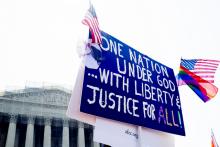
The words above the Supreme Court read, “Equal Justice Under the Law.” This week, two Supreme Court outcomes dramatically affected the reality of those words.
On Tuesday, in a 5-4 decision, a key component of the historic Voting Rights Act of 1965 was struck down, jeopardizing equal justice under the law especially for black, Hispanic, and low-income people whose voting rights have historically been assaulted and have continued to be suppressed as recently as the 2012 election. In fact, Section 4 of the Voting Rights Act — which required parts of the country that have been especially egregious in racially motivated voter suppression to get federal approval of any changes in their voting laws — was specifically used in the 2012 election to prevent new voter suppression. That provision has now been struck down, and efforts to increase barriers to voting are already underway in several states, especially in the South, that would suppress the future votes of Americans of color, especially those with lower incomes.
Equal justice under the law lost on Tuesday, June 25. The Supreme Court’s decision was morally shameful. ...
Contrast Tuesday’s decision with the final ones we saw handed down this week. ... I, along with a growing number of people in the faith community, believe that equal protection under the law is essential for our gay and lesbian friends and family members. While some Christians are conflicted about the theological issues involved, or even are unable to support homosexuality on a religious basis, they also don’t want churches to be the ones standing in the way of civil rights.
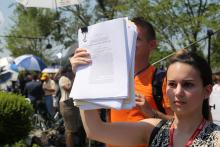
In the Methodist tradition in which I was I raised, there is a concept of perfection. We “strive for perfection” in loving each other and loving God. It is not about avoiding all mistakes. It is about growing in love for neighbor and being hospitable to all we come in contact with. This is the point of our theology: as we grow in faith and love, we become closer to God. In the end, resisting God’s call to love others is pretty hard to do.
And yet we know not everyone we meet is irresistible. We all have moments when some folks are harder to love than others. Sometimes those we find difficult to love are members of our own families. Other times they are friends we’ve had a conflict with. And for some of us, they are hard to love simply because of whom the other person loves.
Sometimes a court opinion is more than just a court opinion.
Justice Anthony Kennedy’s 26-page decision Wednesday striking down a federal ban on same-sex marriages offers a window into Americans’ rapidly shifting views of same-sex relationships — a shift that increasingly relies on matters of law and fairness, not moral or religious views.
At the same time, Justice Antonin Scalia’s biting 26-page dissent in United States v. Windsor reflects a set of cultural, religious, and social arguments that are losing ground in the court of public opinion and now, in the highest court of the land.

On Tuesday, the Supreme Court struck down part of the Voting Rights Act that was enacted in 1965 to root out racial discrimination in voting. The specific section of the Act that was stricken — Section 4 — set forth a formula for determining which jurisdictions need federal clearance before making even minor changes to voting procedures. The impact of striking Section 4 is that the most important part of the Act, Section 5, is now rendered useless. Section 5 provides that states, cities, and counties with a history of racial discrimination in voting must “pre-clear” changes to voting procedures with the Department of Justice or a special court in Washington, D.C. Without the formula in Section 4 to determine which states, cities, and counties the preclearance should apply to, the preemptive protection provided by Section 5 no longer exists, and any future challenges to changes in voting procedure must happen after such changes are already in effect.
The majority of the Court felt that racial minorities do not continue to face discriminatory voting practices, and that the preclearance requirement was based on 40-year-old facts that had no logical bearing on present day. Chief Justice Roberts, Jr., wrote:
“Our country has changed. While any racial discrimination in voting is too much, Congress must ensure that the legislation it passes to remedy that problem speaks to current conditions.”
The practical application of Tuesday's decision is that states will be able to enact potentially discriminatory laws that previously had been blocked. This was made immediately apparent in Texas, which announced after the ruling that voter identification laws would go into effect immediately.
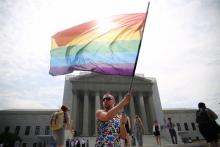
The Supreme Court this morning struck down the Defense of Marriage Act, 5-4, which prohibits the federal government from recognizing same-sex marriages performed in states.
From the opinion:
"DOMA violates basic due process and equal protection principles applicable to the Federal Government. The Constitution’s guarantee of equality 'must at the very least mean that a bare congressional desire to harm a politically unpopular group cannot' justify disparate treatment of that group."
Read the full opinion here.
Following the court's announcement, President Barack Obama Tweeted his support.
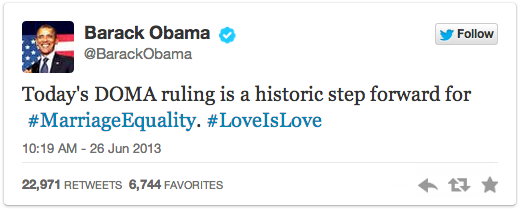
The Washington Post reports:
“The federal statute is invalid,” wrote Anthony Kennedy in his majority opinion, “for no legitimate purpose overcomes the purpose and effect to disparage and to injure those whom the State, by its marriage laws, sought to protect in personhood and dignity.”
Read more here.
Also on Wednesday, in another 5-4 decision, the Court ruled that the appeal to the lower court's decision overturning California's Proposiion 8 — the state ballot measure that ruled that only marriage between a man and a woman would be recognized — had no standing, in effect, allowing same-sex marriage to continue on the state.
Read the opinion here.

In a vote of 7-1 on Monday, the Supreme Court sent an affirmative action case, Fisher v. University of Texas, back to the lower court for a re-hearing, while reaffirming the benefits of diversity in institutions of higher learning and authorizing the continued use of race as one factor in admissions. By sending the case back to determine if the University of Texas could find no “available, workable race-neutral” alternatives available to them, Justice Ruth Bader Ginsberg explained the court did not issue a strong enough support for affirmative action. I agree. By virtue of our nation’s not-so-distant history, race simply is a factor that should be considered.
For nearly 250 years, blacks were bought and sold like cattle and carriages on auction blocks across America. When the Atlantic slave trade was outlawed in 1807, the U.S. bred slaves to reinforce the fundamental source of its wealth: free labor. When shackles fell from the wrists and legs of black men, women, and children — and the Reconstruction Era took hold — black families thrived and held public office. Then, for the next 80 years, thousands of white men in the South covered their faces with sheets, burned crosses, lynched 3,445 black men, women, and children, and instituted a web of laws that made it nearly impossible for blacks to vote, attain equal education, or own a home of much worth. At the same time in the North, blacks, Latinos, and Asians were redlined into urban ghettos where access to good housing, competitive education, adequate health care, effective law enforcement, and gainful employment was scarce.
When did this reign of terror against African-Americans end? The Civil Rights Act of 1964 and Voting Rights Act of 1965 outlawed so-called “Jim Crow” laws that had blocked blacks from voting and legally reinforced racial segregation. The acts laid the foundation for legal recourse against all manner of discrimination from that day to present.
Now consider this: We have made only two generations of progress after 17 generations of comprehensive, structural, systematized, and racialized oppression. And the effects of that oppression still haunt us today.

This week the U.S. Supreme Court is expected to hand down decisions on two significant cases for same-sex marriage: United States v. Windsor (regarding the Defense of Marriage Act, or DOMA), and Hollingsworth v. Perry (regarding California’s Proposition 8).
At the Supreme Court this morning, an expectant crowd gathered hoping to catch the decisions firsthand. Most in attendance were visibly supportive of same-sex marriage, and many were cautiously optimistic that the Court would strike down DOMA, Proposition 8, or both.
See our slideshow and interviews with those gathered at the Supreme Court, below.
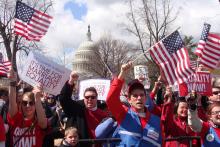
If the range of possible Supreme Court rulings on gay marriage this month requires a scorecard, the potential confusion arising from those decisions may demand a manual.
It’s not as simple as whether gays and lesbians can marry, and whether they become eligible for federal benefits. The two decisions are likely to create new questions for couples in civil unions and those who move between states, as well as for employers.
As a result, what’s already a complex situation for many gay and lesbian couples could get more complicated, at least initially, said John Culhane, a law professor at Widener University’s Delaware campus and co-author of Same-Sex Legal Kit for Dummies.
Voters in Arizona celebrated yesterday after the Supreme Court dismissed parts of Proposition 200 — the requirement that made people of Arizona provide proof of citizenship when registering to vote. Although parts of Prop 200 remain intact, yesterday’s ruling was considered a step in the right direction for voters and immigrants across our nation. The Nation reports:
The Supreme Court defended voting rights yesterday when it struck down Arizona’s requirement to present proof of citizenship when registering to vote. But while the decision relieves registrants of an unnecessary burden, the rest of the proposition that brought it into being remains intact. Arizona’s Proposition 200 attacks not only voters but immigrants as well. Despite a win for voting rights yesterday, undocumented immigrants will remain especially vulnerable under the law.
Read more here.
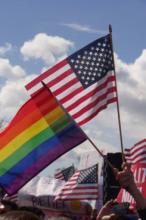
Houston lawyer Mitchell Katine came to the Supreme Court 10 years ago for the final chapter of Lawrence v. Texas, the landmark gay rights case in which the justices struck down state sodomy laws.
Neither Katine nor the other lawyers working for John Lawrence and Tyron Garner in their battle against Texas’ sodomy law imagined the length and breadth of Justice Anthony Kennedy’s majority decision, which struck down all remaining state sodomy laws.
As the Supreme Court prepares to issue two historic decisions on gay marriage this month, however, the judges and lawyers who worked on both sides of those earlier cases don’t expect anything quite so eloquent or all-encompassing from a cautious and conservative court.
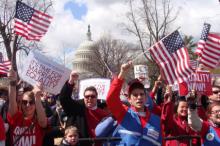
About 72 percent of Americans say legal recognition of same-sex marriage is “inevitable,” according to a survey released Thursday.
Of those who support same-sex marriage, about 85 percent say it is inevitable, says the Pew Research Center’s survey. About 59 percent of opponents also say it is inevitable.
“As more states legalize gay marriage or give equal status, the question in our minds was how the public sees the trajectory on this issue,” said Michael Dimock, the report’s lead author and director of the Pew Research Center for the People and the Press. “Do they see a future in which gay marriage is going to be the rule, not the exception, in American society?”
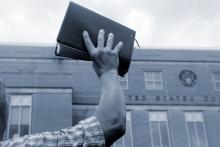
The Supreme Court agreed Monday to consider whether prayers can be offered at government meetings — a practice that’s been common in Congress and throughout the states for more than two centuries.
The religious expression case, which comes to the court from the town of Greece, N.Y., focuses on the first 10 words of the First Amendment, ratified in 1791: “Congress shall make no law respecting an establishment of religion.”
That Establishment Clause was violated, the 2nd U.S. Circuit Court of Appeals ruled last year, when the Greece Town Board repeatedly used Christian clergy to conduct prayers at the start of its public meetings. The decision created a rift with other appeals courts that have upheld prayer at public meetings, prompting the justices to step in.

When New York Cardinal Timothy Dolan told national news programs on Easter Sunday that Catholic leaders need to do a better job of showing that their opposition to gay marriage is not “an attack on gay people,” the nation’s top Catholic bishop seemed to be signaling an important shift in tone, if not policies, that acknowledges two new realities.
One is the election of a new pope, Francis, who in less than a month has demonstrated a clear preference for engagement and inclusion (washing the feet of women and Muslim inmates at a Rome youth prison, for example) rather than the confrontation and political purism that often found favor under his predecessor, Benedict XVI.
The other is the ongoing shift in favor of same-sex marriage in the court of public opinion and — if recent arguments on Proposition 8 and the Defense of Marriage Act are any guide — perhaps soon in the U.S. Supreme Court.